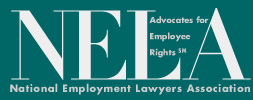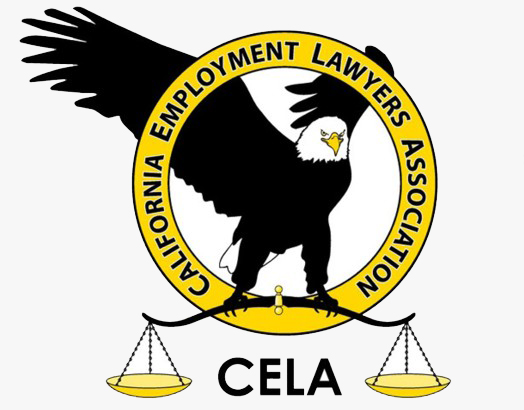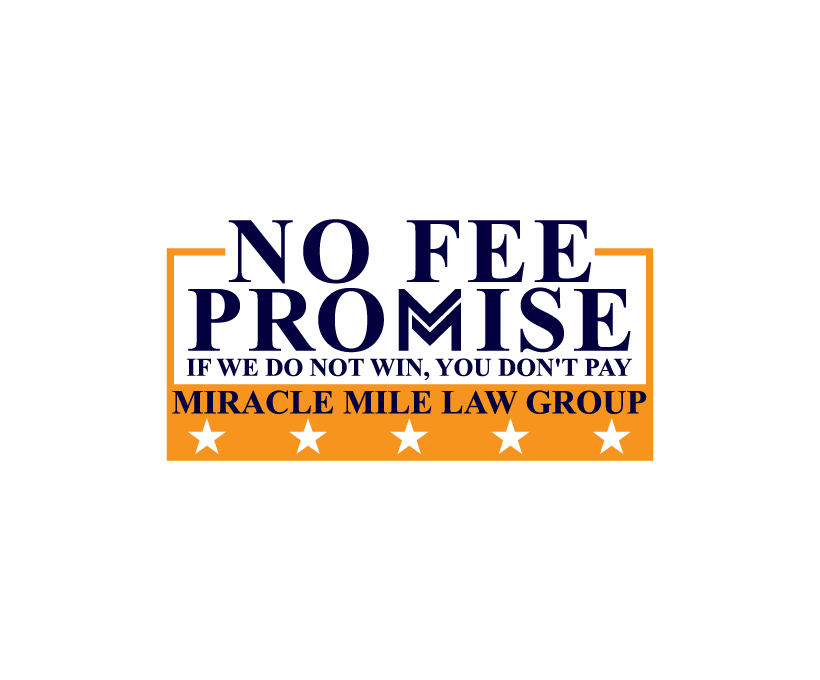Sexual Harassment Attorneys in California
Los Angeles Sexual Harassment Attorney
Sexual harassment remains a serious concern for employees across all industries. In the wake of the #MeToo movement, more individuals are speaking out than ever before, and harassers are increasingly being held accountable. Sexual harassment lawsuits have led to record-breaking settlements and monetary awards for employees who have been subjected to this unlawful conduct.
Employers are often held legally responsible for the harassing actions of their supervisors and employees. That’s why working with a skilled sexual harassment lawyer is essential to protecting your rights and holding the responsible parties accountable.
Your rights if you are sexually harassed at work
California employees are entitled to a workplace free from harassment, intimidation, and retaliation. Both federal law (Title VII of the Civil Rights Act) and California’s Fair Employment and Housing Act (FEHA) prohibit sexual harassment. FEHA provides broader protections and applies to employers with five or more employees. Employers are responsible for stopping harassment and taking steps to prevent it. Liability applies even if the harassment comes from clients, vendors, or other third parties, as long as the employer knew or should have known.
What to expect in a sexual harassment case
When you hire Miracle Mile Law Group, our attorneys guide you through each step of the process and handle the legal work on your behalf:
- Consultation and case review: We listen to your story, examine the facts, and determine the strongest legal claims.
- Filing the complaint: Our team prepares and files the necessary paperwork with the California Civil Rights Department (CRD) or the EEOC.
- Investigation and right-to-sue: We manage communication with the agencies, respond to inquiries, and, when appropriate, request a right-to-sue letter to move your case forward.
- Settlement negotiations: We advocate aggressively for fair compensation, often resolving cases through settlement without trial.
- Litigation: If a settlement cannot be reached, we are fully prepared to take your case to court and present it before a judge or jury.
Damages and Compensation in California Sexual Harassment Cases
Employees who prove sexual harassment under California’s Fair Employment and Housing Act (FEHA) and related laws may recover financial and non-financial remedies. The recovery depends on the facts, the harm suffered, and the employer’s response after a complaint.
What you can recover
- Back pay: Lost wages and benefits from termination, demotion, or reduced hours.
- Front pay: Future wages when reinstatement is not feasible.
- Emotional distress damages: Compensation for anxiety, humiliation, sleeplessness, and related harm.
- Punitive damages: Available in egregious cases to punish and deter when proven under California Civil Code section 3294.
- Equitable relief: Reinstatement, policy changes, training, and corrective action against harassers.
- Attorney’s fees and costs: Fee shifting is available in successful FEHA actions.
Key factors that influence case value
- Severity and frequency of the harassment and any physical or explicit conduct.
- Connection between the harassment or complaint and adverse actions such as termination or demotion.
- Employer knowledge and response after notice, including the quality and speed of any investigation.
- Documented wage loss, medical or therapy records, and corroborating witness testimony.
- Evidence of companywide issues such as prior complaints or policy violations.
Our results in sexual harassment and related retaliation matters
- $1,000,000 – Sexual Harassment. Executive assistant forced to resign after severe and pervasive harassment by a supervisor.
- $683,000 – Retaliation after reporting sexual harassment and Labor Code violations.
- $575,000 – Sexual Harassment. Substantial settlement for two employees.
- $475,000 – Sexual Harassment. Young professional subjected to ongoing harassment and compelled to resign; recovery after hard-fought litigation.
- $450,000 – Sexual Harassment. Same-sex harassment claim resolved for a significant sum.
- $340,000 – Sexual Harassment. Judgment against employer that failed to protect an employee from a harasser; favorable settlement followed.
- $250,000 – Quid Pro Quo Sexual Harassment. Supervisor advances linked to job opportunities and discipline; substantial settlement secured within three months.
Appellate experience that advances employee rights
Our attorneys secured a California Court of Appeal decision in Kruitbosch v. Bakersfield Recovery Services, Inc. (Cal. Ct. App., Fifth Dist., 2025). The court held that an employer’s response to off-site harassment can create a hostile work environment under FEHA. The opinion clarifies that employers may be liable when they ignore, minimize, or mock complaints about harassment that occurs away from the workplace but affects conditions of employment. This binding precedent strengthens protections for California employees statewide.
If you want a focused assessment of potential damages in your case and the evidence that will move value, contact Miracle Mile Law Group for a free consultation.

Sexual harassment in the workplace can include a range of behaviors, such as requests for sexual favors, inappropriate touching, or the use of offensive language. However, not all inappropriate conduct is considered illegal “sexual harassment.” Generally, to qualify as unlawful, the behavior must be either severe or pervasive enough to create a hostile or offensive work environment, or it must result in an adverse employment action (such as being fired, demoted, or denied a promotion).
While some situations clearly cross the line, others may be more subtle or confusing. You may be unsure whether what you’ve experienced qualifies as sexual harassment under the law.
Here are some common questions employees ask:
- Is a man able to sue for sexual harassment?
- Am I able to sue for sexual harassment if my harasser and I are the same sex?
- Can I sue for sexual harassment if I was not touched?
- Is staring considered sexual harassment?
- Does sniffing count as sexual harassment?
- Do offensive words count as sexual harassment?
- Can hugs at work count as sexual harassment?
- Does sexual harassment have to be sexual in nature?
- Can I sue my boss for sexual harassment by my co-worker?
- If my boss demotes me for refusing to have sex with him, can I sue?
If you were sexually harassed at work, you may be entitled to compensation. Miracle Mile Law Group is here to help you pursue the maximum damages available for your sexual harassment case. We’re committed to guiding you through the legal process and answering any questions you may have. Having a dedicated sexual harassment lawyer by your side can make all the difference in protecting your rights.
Whether you were sexually harassed by a supervisor, a co-worker, or another individual in the workplace, you will likely need some form of evidence to support your claim. If you believe you are being—or have been—sexually harassed, consider taking the following steps:
- Create a detailed written record of anything that may suggest sexual harassment, including inappropriate comments or conduct by your supervisor or co-workers.
- Gather your performance reviews, personnel files, and any HR documents related to your employment.
- Document every instance of unwanted touching, inappropriate comments, or behavior that feels uncomfortable or hostile—include dates, times, and locations.
- Save all emails, text messages, and other communications between you and your supervisor, HR, or colleagues that may help support your case.
If you are unable to gather this type of proof, don’t panic. Sexual harassment can also be proven through witness testimony or corroborating statements from co-workers.
If you’re in this situation, contact the sexual harassment attorneys at Miracle Mile Law Group as soon as possible. We’ll work with you to evaluate your claim, gather evidence, and build a strong case to protect your rights.
Courts and government enforcement agencies divide sexual harassment into two broad categories: (1) quid pro quo sexual harassment and (2) hostile work environment sexual harassment.
Type #1: Quid Pro Quo Sexual Harassment
Quid pro quo literally means “this for that” in Latin. This type of harassment typically occurs when a person who has the power to influence an employment decision or condition seeks a sexual favor in return for a positive employment outcome.
Quid pro quo harassment occurs, for example, when a supervisor demands that an employee consent to some form of sexual encounter to receive a promotion, a raise, or to continue employment. It can involve either explicit or implicit conditioning of a job or promotion on the sexual encounter.
Type #2: Hostile Work Environment Harassment
Hostile work environment harassment is usually more subtle and difficult to recognize than quid pro quo sexual harassment. Hostile work environment sexual harassment occurs when unwelcome sexual jokes, suggestive remarks, cartoons, physical interference with movement (such as blocking a person or following a person), sexually derogatory comments or other conduct based on sex unreasonably interferes with an employee’s work performance or creates an intimidating, hostile or offensive working environment.
While repeated instances of such conduct can be sufficient to show that the sexual harassment has occurred, even one instance of this conduct may be enough to show that a person is in a hostile work environment if it is pervasive enough.
However, the conduct must be “severe or pervasive” such that it alters the victim’s employment and creates an abusive working environment. Whether the conduct is “severe or pervasive” will come down to the conduct’s nature, frequency, severity, context and several other factors.
- Remember in order for a plaintiff to bring a sexual harassment claim, the harassment must be severe and pervasive from the perspective of a reasonable person with the same fundamental characteristics of the plaintiff. Some examples of what may not be considered sexual harassment include:
- Wearing clothes that may be offensive to a particular ethnic group
- A one-off friendly gesture about a person’s look
- An isolated remark
- Sexual flirtation or innuendo
- Vulgar language that is trivial or merely annoying
-
- Both Federal and State law protects employees from sexual harassment.
Federal Law
Under Federal law, sexual harassment is prohibited by Title VII of the Civil Rights Act of 1964 (Title VII). The Equal Employment Opportunity Commission (EEOC) enforces federal prohibitions against sexual harassment.
State Law
In California, harassment laws are part of the Fair Employment and Housing Act (FEHA). The California Department of Fair Employment and Housing (DFEH) enforces FEHA.
Questions You Are Probably Asking Yourself About Your Sexual Harassment Case:
- Can my boss fire me for reporting instances of sexual harassment?
- Can my employer assign me to a different position because I reported sexual harassment?
- Can my employer lower my salary because I reported sexual harassment?
- Can I file a discrimination lawsuit against my employer because he sexually harassed me?
- How much is my sexual harassment lawsuit worth?
- Can my employer demote me because I filed a sexual harassment claim against my boss?
If you are asking yourself any of these questions, talk to a sexual harassment lawyer now. Call us at (213) 433-3588 to talk to a trained attorney now.
- Both Federal and State law protects employees from sexual harassment.
- Statute of Limitations: A statute of limitations refers to the amount of time you have to file a lawsuit in a court of law. If you do not file within the time permitted by the statute of limitations, then you lose the chance to recover your damages. Sexual harassment lawsuits have a statute of limitations. However, a sexual harassment lawyer will help you determine whether your case falls within the statute of limitations.
- What is the Statute of Limitations for a Sexual Harassment Lawsuit? If you are bringing a sexual harassment claim under federal law, you generally must file a charge with the Equal Employment Opportunity Commission (EEOC) within 180 days of the last act of harassment, or up to 300 days if your state has its own fair employment agency. Once the EEOC issues a right-to-sue letter, you have 90 days to file a lawsuit in federal court. In California, you must first file a complaint with the California Civil Rights Department (CRD, formerly DFEH). You have up to three years from the last discriminatory or harassing act to file with the CRD. After receiving a right-to-sue letter, you then have one year to bring your case in state court. Because these deadlines are strict and fact-dependent, it is important to act quickly and consult an employment attorney to preserve your rights.
- What If the Time Has Passed for Me to File a Sexual Harassment Lawsuit? In most cases, if you do not file a timely lawsuit within the statute of limitations, then there is no chance of recovery. However, there is one option that a skilled lawyer can pursue. This includes the Continuing Violations Doctrine. The Continuing Violation Doctrine may extend the one-year time period if the employee’s lawyer can prove that some of the employer’s conduct fell outside the one-year period AND the conduct was sufficiently linked to the conduct that does fall within the one-year period.
Here at Miracle Mile Law Group, our sexual harassment lawyers receive many questions surrounding sexual harassment. In this section, we’ll answer some of the most frequently asked questions from employees who are facing workplace harassment and provide helpful guidance.
Talk to a Los Angeles Sexual Harassment lawyer today. We offer free consultations and you pay nothing unless we win.
The lawyers at Miracle Mile Law Group are specially trained in handling sexual harassment lawsuits. If you believe you have been or are currently a victim of sexual harassment, give us a call at (888) 244-0706 or contact us online for a FREE case evaluation.
| Case Type | What It Is | Key California Legal Standards | Evidence to Gather | Employer Liability & Remedies |
|---|---|---|---|---|
| Workplace Sexual Harassment Overview | Unwelcome conduct based on sex, gender, gender identity/expression, pregnancy, sexual orientation, or related stereotypes that affects the workplace. Can be verbal, visual, physical, or digital. |
FEHA (Gov. Code §12940(j))
Covers employers of any size for harassment
Conduct must be severe or pervasive enough to create a hostile environment, or involve a tangible employment action (e.g., firing, demotion). |
A dated log of incidents; emails/texts/DMs; photos or screenshots; witness names; HR reports; performance reviews showing adverse actions following reports. | Employers must take reasonable steps to prevent/correct harassment (training, prompt investigations). Remedies may include back pay/front pay, emotional distress, policy changes, punitive damages, and attorney’s fees. |
| Quid Pro Quo Sexual Harassment “This for That” | Job benefits (hiring, promotion, raises, scheduling) or avoidance of harm are conditioned on submitting to sexual demands; refusal leads to adverse action. |
FEHA §12940(j)
Supervisor strict liability
When a supervisor links employment decisions to sexual cooperation, liability typically attaches without the “severe or pervasive” showing. |
Messages tying benefits to sexual favors; notes from meetings; performance changes after refusal; witness statements; offer letters or review forms showing sudden reversals. | In California, employers are strictly liable for a supervisor’s quid pro quo harassment. Remedies include economic and non-economic damages, reinstatement, and punitive damages in egregious cases. |
| Hostile Work Environment Severe or Pervasive | A pattern (or a single extremely serious incident) of unwelcome sexual conduct—jokes, slurs, propositions, staring, touching, explicit images—that unreasonably interferes with work or creates an abusive environment. |
FEHA §12940(j)
“Reasonable person” standard
One incident can suffice if severe (e.g., assault). Otherwise, the totality—frequency, severity, context, power dynamics—determines “pervasive.” |
Running timeline of incidents; screenshots of chats/memes; security footage (if any); coworker corroboration; medical/therapy records for distress; HR responses. | Employer liable if it knew or should have known and failed to take immediate and appropriate corrective action. Remedies include damages, training mandates, policy revision, transfers, or reinstatement. |
| Employer Liability for Sexual Harassment Who’s Responsible? | Rules that determine when the company pays for harassment by supervisors, coworkers, or third parties (customers, vendors). |
Supervisor: Strict liability
Coworker/Third Party: Knew/Should Have Known
Employers must maintain a complaint process, conduct prompt impartial investigations, and take effective remedial steps. |
Handbooks, training records (AB 1825/2053 compliance); prior complaints; investigation notes; emails showing notice to management; outcomes and timing of any remedial actions. | Failure to prevent harassment is itself a FEHA violation (§12940(k)). Remedies can include damages, injunctive relief (training, discipline), and attorney’s fees; punitive damages available for malice/oppression/fraud. |
| Retaliation for Reporting Sexual Harassment Protected Activity | Adverse actions (termination, demotion, hours cut, schedule changes, isolation) because an employee reported, opposed, or participated in an investigation of sexual harassment. |
FEHA §12940(h)
Labor Code §1102.5 (whistleblowing)
Employee must show protected activity, adverse action, and a causal link (often proven through timing, comments, or shifting explanations). |
Complaint copies; right-to-sue/agency filings; timeline showing close timing between report and discipline; performance history; texts/emails; comparator evidence (how others were treated). | Available relief includes back pay, front pay, emotional distress, civil penalties, reinstatement, and punitive damages where appropriate, plus attorney’s fees and costs. |
| Note: California’s FEHA harassment provisions protect employees, applicants, interns, volunteers, and contractors, and apply to employers of any size for harassment claims. Many claims begin with a complaint to the California Civil Rights Department (CRD); strict deadlines apply. Every sexual harassment case is different, for specific details related to your case, please contact Miracle Mile Law Group to get precise information related to your claims or case with a free consultation. | ||||




